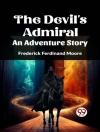Herman Melville’s ’Typee’ and ’Omoo’ stand as seminal works in 19th-century American literature, offering a vivid exploration of life in the South Seas. Through rich, descriptive prose and an engaging first-person narrative, Melville invites readers into the exotic landscapes and intricate cultures of Tahiti and the Marquesas Islands. These semi-autobiographical tales blend adventure and romanticism with sharp observations on colonialism and human nature, providing profound insights into the clash of civilizations and the complexities of freedom and captivity. Melville, an influential figure in American literature, drew inspiration from his own experiences as a sailor and his encounters with indigenous peoples during his voyages in the Pacific. His familiarity with maritime life and the socio-cultural dynamics of island societies informed the authenticity of his narratives. Furthermore, Melville’s deep philosophical inquiries and reflections on the human condition are palpable in these works, highlighting his preoccupation with existential themes and the limits of civilization. ’Typee’ and ’Omoo’ are essential reads for anyone interested in early American literature, maritime adventure, and post-colonial themes. Melville’s eloquent storytelling and keen observations will transport readers to unfamiliar shores while provoking thoughtful reflection on the complexities of cultural encounters and personal identity.
Om författaren
Herman Melville (1819–1891), a towering figure in American literature, is celebrated for his profound and complex narrative style, which is vividly exemplified in his earliest novels, ’Typee’ (1846) and ’Omoo’ (1847). These works, which initially garnered him literary acclaim, are semi-autobiographical adventure stories inspired by Melville’s own experiences in the South Pacific. ’Typee, ’ his first novel, draws from his time on the Marquesas Islands, presenting a captivating and—at times—idealized view of indigenous life, raising questions about the nature of civilization and savagery. ’Omoo’ continues the narrative, following the same protagonist and providing further critique of colonial and missionary influences in the region. Melville’s keen exploration of cultural encounters, along with his rich, descriptive prose, sets the foundation for the themes he would continue to explore in his magnum opus, ’Moby-Dick.’ Melville’s literary style combines elements of romanticism with a pre-modernist complexity, incorporating symbolism and deep philosophical introspection, which have established him as a significant precursor to later literary movements. His body of work, though not fully appreciated during his lifetime, has undergone a significant revaluation, and today Melville is recognized both for his contributions to the American Renaissance and for his prescient insights into the ambiguities of identity, power, and the human condition.












